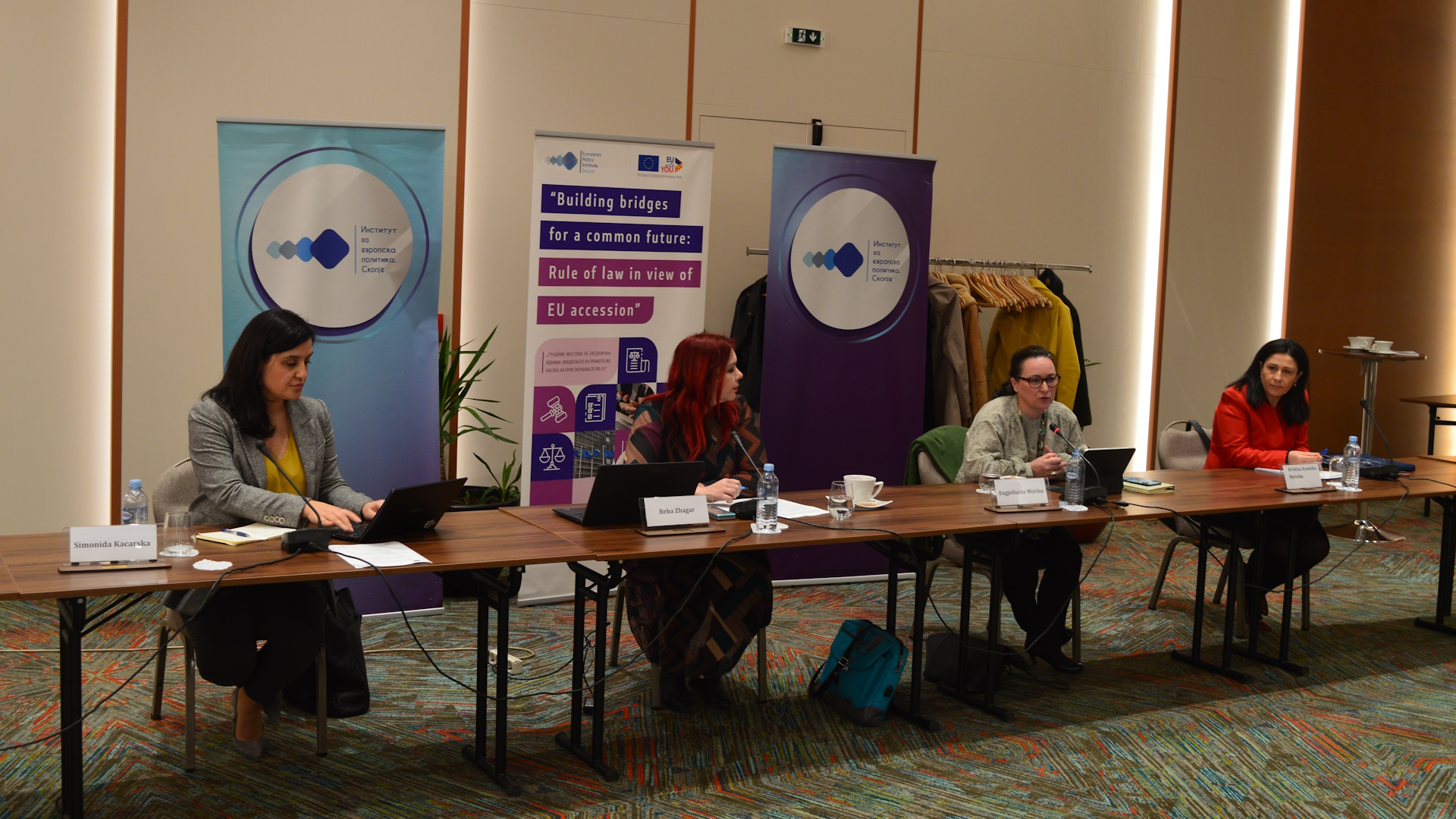At today’s policy dialogue hosted by the European Policy Institute titled “Rule of Law in EU Members and Candidate Countries: Challenges and Lessons Learned,” experts gathered to discuss the state of the rule of law within the European Union and its candidate countries. The event featured notable speakers including Maria Skóra from the Institute for European Politics in Berlin, Engjellushe Morina from the European Council on Foreign Relations, Charles Brasseur from the International Institute for Democracy and Electoral Assistance, and Hristina Koneska – Beroska, State Counsellor at the Secretariat for European Affairs.
During the dialogue, a recurring theme was the resilience of the rule of law (ROL) across the EU. The discussion revealed clear geographical differences in ROL resilience, underscoring that a resilient democracy is bolstered by strong institutions, independent media, and an active citizenry. Another focal point was the enlargement debates within the EU, showcasing differing perspectives among member states on the future of enlargement. Despite a consensus on the necessity for expansion, unresolved ROL issues and bilateral concerns present significant hurdles.

Experts emphasized the critical role of the EU in addressing rule of law challenges and fostering democracy. A renewed narrative on democracy, coupled with an integrated approach to democracy support, was highlighted as essential for tackling issues such as corruption, polarization, and disinformation. These efforts are vital for upholding values amidst enlargement efforts and maintaining the EU’s credibility.
The dialogue also pointed out the importance of preparation and roadmaps in guiding candidate countries through the accession process and addressing rule of law challenges. Transparency, inclusivity, and political consensus were deemed vital for the successful implementation of these roadmaps. Additionally, the role of civil society and the importance of strategic communication were noted for their potential to garner societal support and maintain momentum towards EU accession.
The event concluded with a strong message on the indispensable role of the rule of law in upholding the EU’s fundamental values. Strengthening mechanisms to safeguard the rule of law, fostering political consensus, and enhancing communication and monitoring is imperative for the EU’s credibility and the success of future enlargements. As the Union contemplates its enlargement, the insights from this policy dialogue offer valuable lessons and recommendations for ensuring a resilient rule of law and a successful integration of new members.






